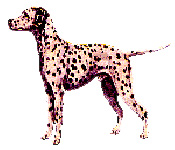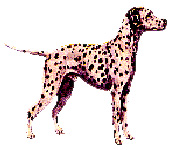Sunflower
WICHITA STATE UNIVERSITY
Wichita KS
Tom McCormack. The pensive voice of gay pop
'I'm grateful for being gay'
Tom McCormack speaks with the quiet, pensive voice of an artist. His softly-uttered words hang in the air like hazy smoke, begging explanation and interpretation.He laughs with the same simple and quiet style - vaguely detached, perhaps, but still well aware of the world around. Aware enough to coment on it, albeit with a Zen-like obscurity.
He sings with an honest, almost child-like sincerity. His songs are both painfully personal and universally appealing. They are quite frank about his homosexuality, but not merely concerned with it.
He's also human, just like every other man or woman, straight or gay, who might happen across his album Missing.
McCormack, who despite his placid demeanor lives in frenetic New York City is a singer/pianist on the vanguard of the gay music scene. Though he is little-known outside NYC and New England, gay and straight publications nationawide have heralded him as the pre-eminent voice in gay pop.
A lofty send-up for such a grounded individual, but McCormack is astute enough not to let the praise affect the integrity of the music.
"I've been writing songs since I was 11 years old," he said. "My music, my own songs, clued me in to what was going on inside of me. I didn't come out as a gay man until I was 25, but I felt that my music was always trying to tell me something. Eventually, the songs I was writing called me around to the truth about myself."
McCormack writes from the position of introspective voyeur and spiritual savant as much as he does from the perch of social commentator.
"I'm not a political songwriter, although I do understand the political undertones of what I write," he said. "I make no attempt to hide what I am, but I don't get up on a soapbox, either. I'm very matter-of-fact about being gay."
But he's not hostile. So many stereotypes portray homosexuals as either effeminate swishes or leather-clad sex fiends. McCormack, like most gays, is neither.
"My homosexuality influences my music in the way that I perceive the world," he said. "The fileter thorough with I view the world infuses my writing with a certain perspective. I'm of course going to be conscious of what's going on around me. I'm grateful for being gay; it's shaped how I see other human beings. But I also happen to be interested in other things as well."
McCormack has been compared to performers as diverse as Tracy Chapman, Peter Gabriel and Crosby Stills & Nash. He lists among his early influences the myriad singer/songwriters from the early '70s.
"I've always been into lyrically driven music," he said. "And my own music is pretty introspective. Without trying to sound too cosmic, I'm trying to figure out what my own personal path in the world is. And I use my music as a vehicle to that end."
McCormack also frequently refers to a nebulously defined musical genre he calls "queer music." Loosely elucidated, it includes anything that speaks to or from the experience of being gay," McCormack said.
"Because of how society is, we (homosexuals) haven't been able to express ourselves musically," he said. "In queer music, we have an identity, we discuss how we identify ourselves and we discuss who we are."
McCormack is one of the co-creators of the Gay/Lesbian American Music Awards (GLAMA), an awards show that, as its name implies, recognizes homosexual musicians.
"A lot of people say music is music, but gays have historically been excluded from taking part," he said. "Being gay isn't the totality of our influences, but it is definitely a perspective through which we view the world."
"Being gay is something I'm grateful for," he added. "It's shaped how I see the world. So it's natural that that part of me would come through in my music."
Though the entertainment field tends to be more open and accepting of homosexuals, McCormack has encountered a fair amount of homophobia and hostility. Not so much from within the entertainment business, he said, but from the public.
"I've never been physically abused, but I've been called all sorts of wonderful names," McCormack said, sadly and sarcastically. "I make no attempt to hide what I am. A gay performer needs to work from a position of strength. I can deal with the name calling."
-- Jason Curtis
February 16, 1996
Go Back to Reviews page.

